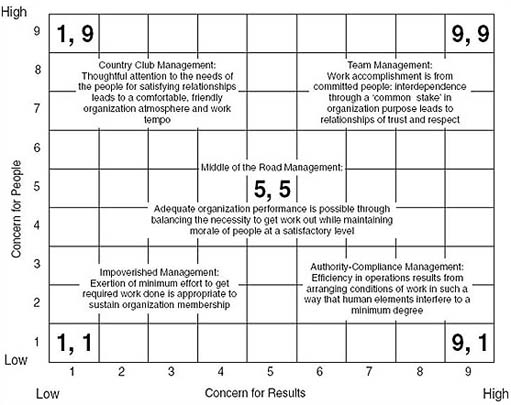5.3.2 Style theories
Style theories are based on the assumption that it is the style of leadership that matters. The alternative styles are generally phrased in terms of 'task centred' or 'person centred'; these have also been called 'structuring' and 'supporting' styles, corresponding roughly to the 'scientific' and 'social relations' styles of management.
The leadership styles are not mutually exclusive and can be represented in the form of a grid, as in Figure 10. Thus it is possible for an individual to be strongly person centred or strongly task centred or both, or neither of these. Although leaders may change from one style to another, they tend to adopt a preferred style.

Leaders high on task orientation are generally perceived as more efficient, while those high on person orientation are seen as providing a more pleasant and satisfying work environment. It has been argued that the person-centred style is more effective because it enables people to meet their self-actualising and esteem needs. However, it has been found that whilst the supportive style of leadership leads to greater subordinate satisfaction, lower grievance rates and less conflict, the gain in productivity is not substantial.
This finding begs the question of what the criteria for assessing effective leadership should be. This is a question that is rarely discussed. The most widely used criterion, although it is usually implied rather than explicitly stated, is whether or not there is a significant increase in productive output, or efficiency, of the group that the leader is responsible for. Naturally this is a very important outcome, but it is certainly not the only one.
Indeed, to place great emphasis on productive efficiency as the criterion for success means that the evaluation of the theories is being done from a task-oriented perspective. This clearly undervalues the person-oriented approach, which by its own criteria values the satisfaction of the workers as much as, or more than, the productive output.
